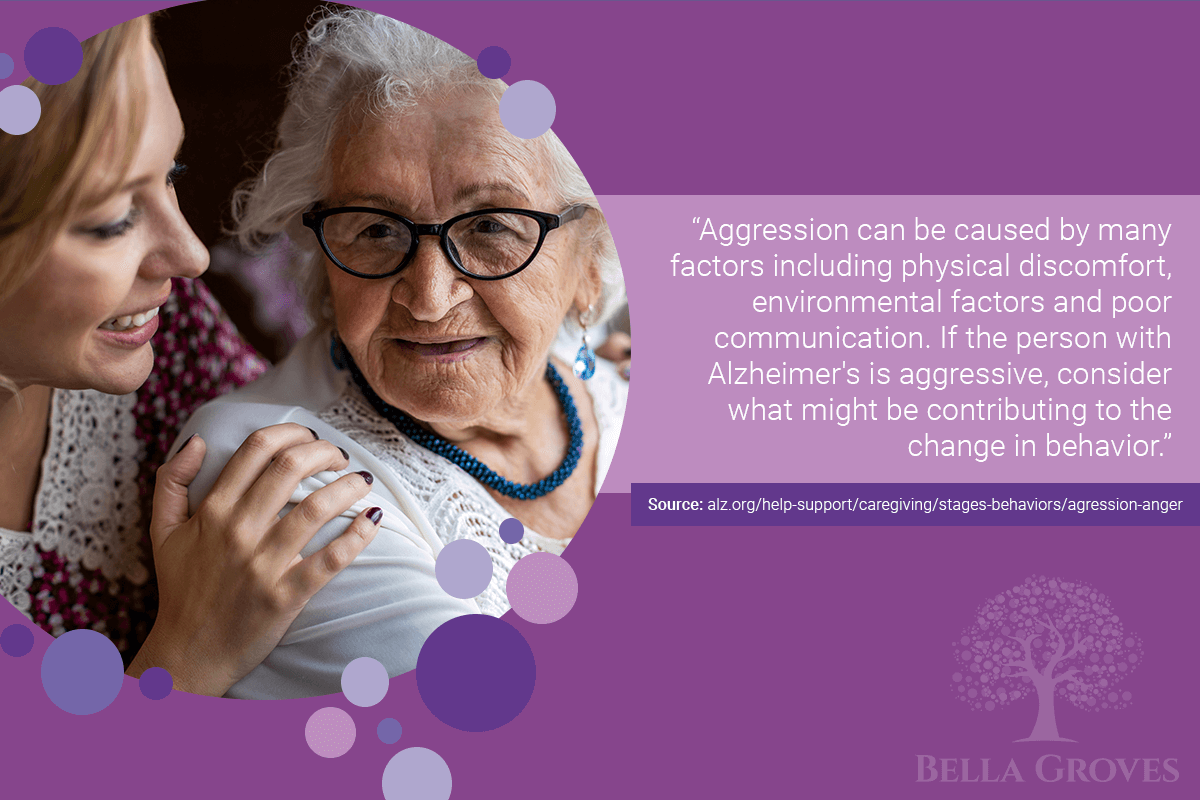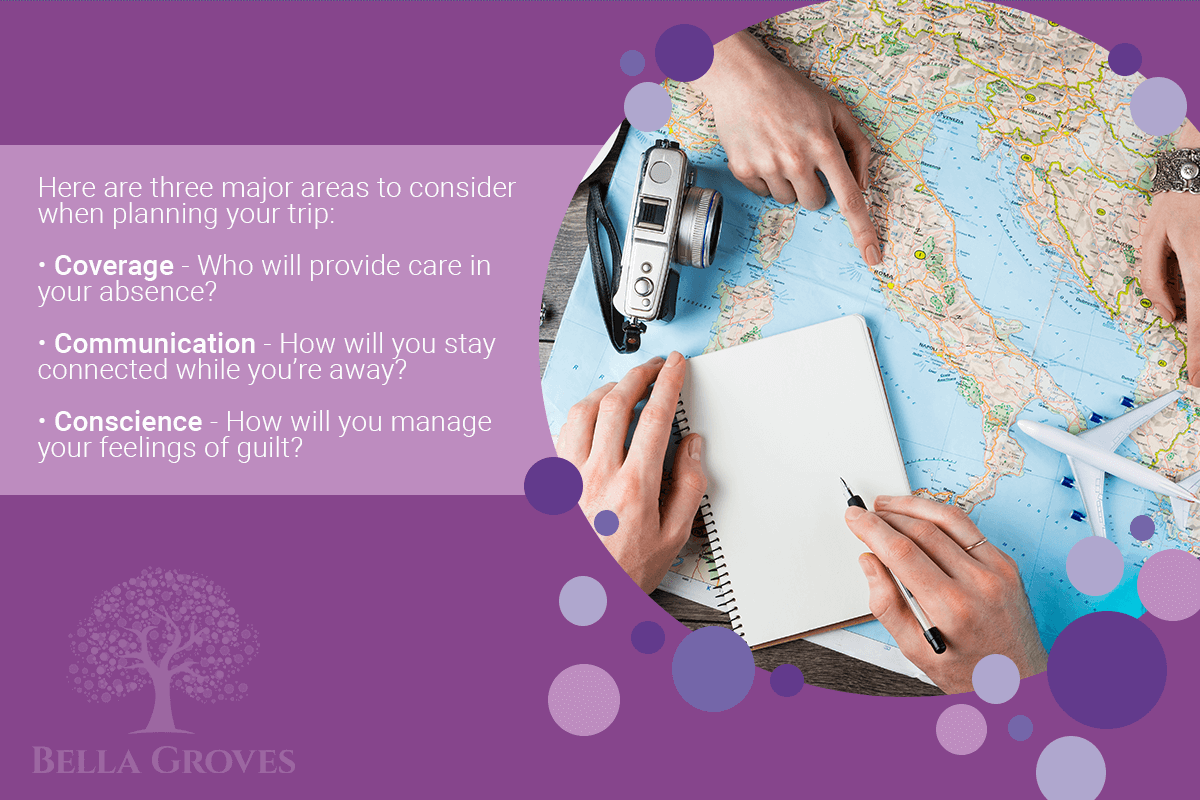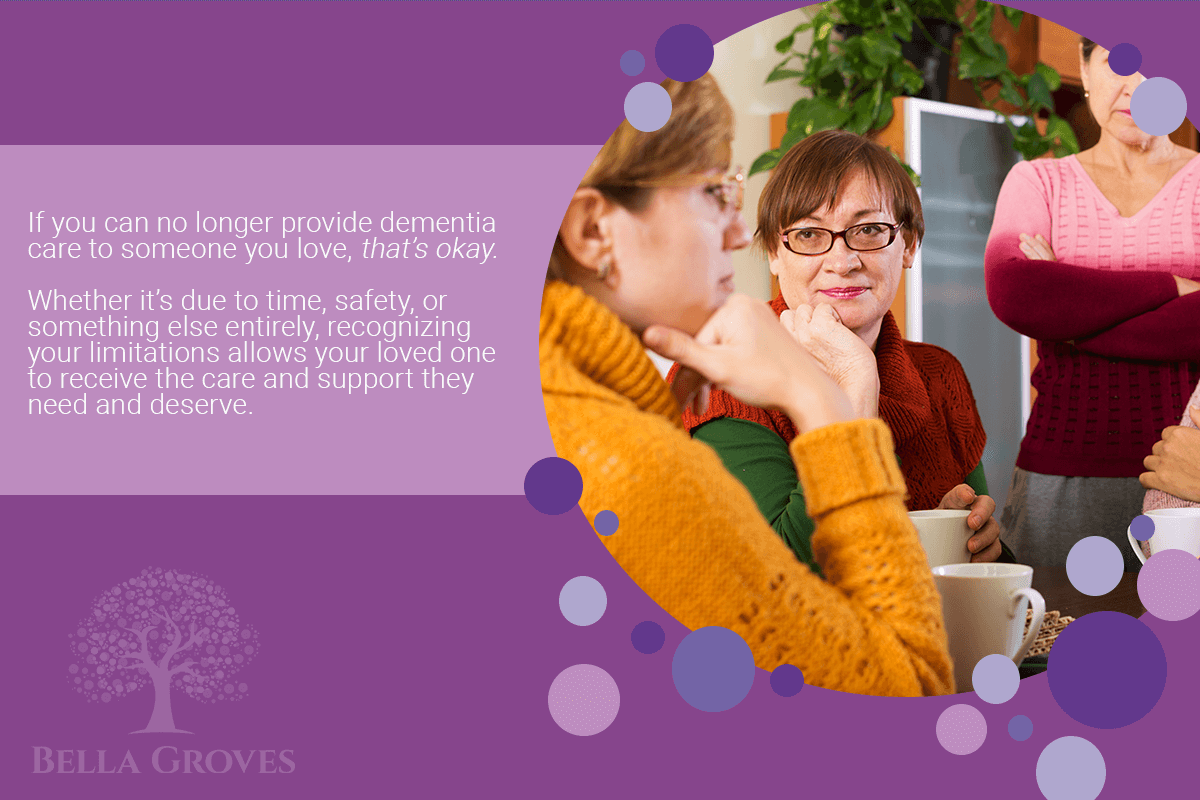
Anger and Dementia: Tips for Coping with Negativity
Getting into an argument or a heated discussion with a family member or friend is always difficult. Emotions tend to run high, people say things they don’t mean, and it can lead to everyone involved feeling upset and agitated.
But what happens when a loved one with dementia expresses anger and negativity? Of course, in any situation, it is normal to feel discouraged and hurt when a person lashes out or becomes angry. Still, as a dementia care partner, it’s essential to understand the ties between anger and dementia.
At Bella Groves, our dementia care team works with individuals and families at every step of their dementia journey. Here are some tips for coping with episodes of anger and negativity.
Anger and Dementia: Causes of Negativity
There are many reasons why a person living with dementia might become angry or frustrated. While some expressions are simply a part of dementia itself, others may be caused by the emotional impact dementia can have on a person.
Sensory Changes
While vision changes are a natural part of aging, a person living with dementia experiences these changes differently. For instance, rather than slight changes in visibility, their entire field of vision can be affected due to the way that the brain changes.
The same goes for hearing. Rather than a slow decline in the ability to hear sounds, a person with dementia can experience issues processing the sounds around them. For example, background noise and conversation can often sound disorienting and scary, making it difficult to comprehend what they hear.
As a result, they can respond to these moments of confusion and disorientation with anger, which is more of an expression of fear than anger at any one thing or person.
Paranoia and Delusions
People with dementia can also experience distortions of reality, which can come in the form of:
- Hallucinations
- Paranoia
- Delusions
While not everyone with dementia will experience these sensations, they can be difficult to handle when they do arise. Those who have dementia with Lewy bodies are more likely to experience these distortions.
Misunderstandings and Confusion
Dementia also affects communication and a person’s ability to articulate what they want or need. This can come in the form of:
- Difficulty finding the right words
- Confusing date, time, names, places
- Easily losing one’s train of thought
- Relying on gestures more than words
For a person living with dementia, it can become increasingly frustrating to know what you want to say but not be able to find the words to say it. Unfortunately, in these situations, this frustration and anger can seem directed at the person they are talking to.
Tips for Coping with Anger & Negativity
Don’t Argue or Get Defensive
Arguments often start because a person feels they have to “win” or “prove a point” in a disagreement. However, this is not a constructive way to approach anger and dementia.
Even if you have a clear point that you want your loved one to understand, restrict yourself from getting frustrated and angry and try to look at the situation from their point of view. They might be feeling confused or unwell, and this anger is the only way that they’re able to express their discomfort.
Safely Give Space
If you’re participating in an activity or helping your loved one with a task and they become angry, try stepping away for a few moments to give them room to breathe. They might be angry because they feel their independence and personal space have been invaded, they may be frustrated about being unable to complete the task at hand, or something else entirely.
Find the Cause
Environmental factors and physical agitations can affect behavior. If your loved one seems angry, search for the cause of these feelings. Pain, fatigue, hunger, and too much stimulation can trigger anger, so here are some steps you can take:
- Being mindful of background noises, like a television, radio, or other excessive noise that may be causing agitation or confusion.
- If you’re in a busy public space, try to find a quieter area.
- Think about the last time they ate or drank and respond accordingly.
Respond with Kindness
Try diverting negative moments by bringing up positive conversatios. Do your best to keep them engaged in the conversation, but ask open-ended questions to redirect the conversation in a positive light. For instance, if your loved one begins to lash out with anger, respond with:
- “Why don’t we take a moment to take a deep breath and sit down?”
- “I remembered something you brought up earlier, and it reminded me of a happy memory. Would you like to look through some old photos?”
- “Why don’t I make us a snack, and we can sit and enjoy our food together. Do you want to help me prepare the food?”
Providing dementia care to a loved one is a very personal journey and creates a strong bond between yourself and your loved one. However, it’s important to understand the connection between anger and dementia to navigate these moments with patience and positivity.
Bella Groves dedicates ourselves to providing helpful navigation and educational insights into the nuances of dementia. Our service levels meet you where you are and provide the knowledge, tools, and support you need to find success and create unconditional joy. Dementia will progress; we’re here to progress with you.
If you have questions about your dementia care journey, we invite you to call us at (830) 323-0440 or email us at hello@bellagroves.com.


